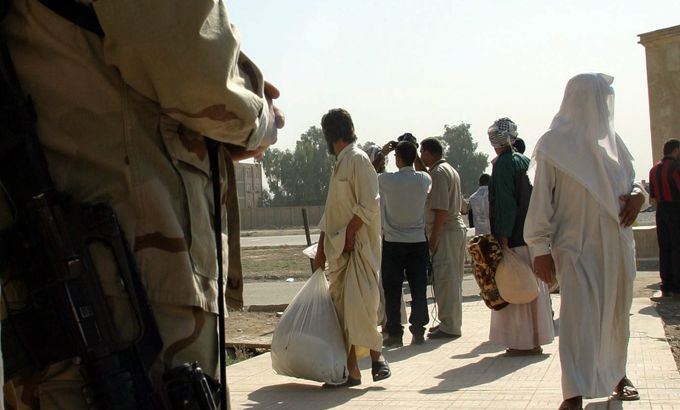Al-Qaeda claims attacks on Iraqi prisons
Guards working in Abu Ghraib and Taji prisons helped hundreds of inmates break out of the jails, interior ministry says.

Al-Qaeda’s Iraq branch claimed responsibility for simultaneous raids on two Iraqi prisons, Abu Ghraib and Taji jails and said more than 500 inmates had been set free in the operation.
In a statement issued on Tuesday, the Islamic State of Iraq and the Levant said it had carried out the attacks after months of preparation.
According to the Iraqi interior ministry, some of the guards helped the attackers during the prison break from Abu Ghraib.
The ministry said in a statement that its senior officials along with senior defence ministry officials had briefed Prime Minister Nouri al-Maliki on the attack on the Abu Ghraib and Taji prisons.
More than 50 people, including 26 guards and Iraqi soldiers were killed in gunmen attacks accompanied by suicide bombers late on Sunday.
“There has been a conspiracy between some of the guards of both prisons and the terrorist gangs that attacked the prisons. That was one of the main reasons for the escalation of events which led to these consequences,” the statement read.
The ministry of justice said 260 prisoners escaped from Abu Ghraib, on the western outskirts of Baghdad. Officials said yesterday 500 had originally been freed, but security forces managed to recapture about 150 of them.
A manhunt is still under way for tens of inmates, including high-ranking al-Qaeda members, most of whom received death sentences.
Al Jazeera’s Jane Arraf, reporting from Baghdad, said that this was the most serious challenge from al-Qaeda the government has faced in years.
“This is a group they thought they had dismantled,” our correspondent said.
The attacks on the prisons came a year after al-Qaeda’s Iraqi affiliate announced it would target the justice system.
“The first priority in this is releasing Muslim prisoners everywhere, and chasing and eliminating judges and investigators and their guards,” said an audio message attributed to the group’s leader, Abu Bakr al-Baghdadi, in July last year.
Prisons in Iraq are periodically hit by escape attempts, uprisings and other unrest.
Abu Ghraib became notorious after photographs showing Iraqi detainees being humiliated and abused by their US guards were published in 2004. It also served as a torture centre under Saddam Hussein’s regime.